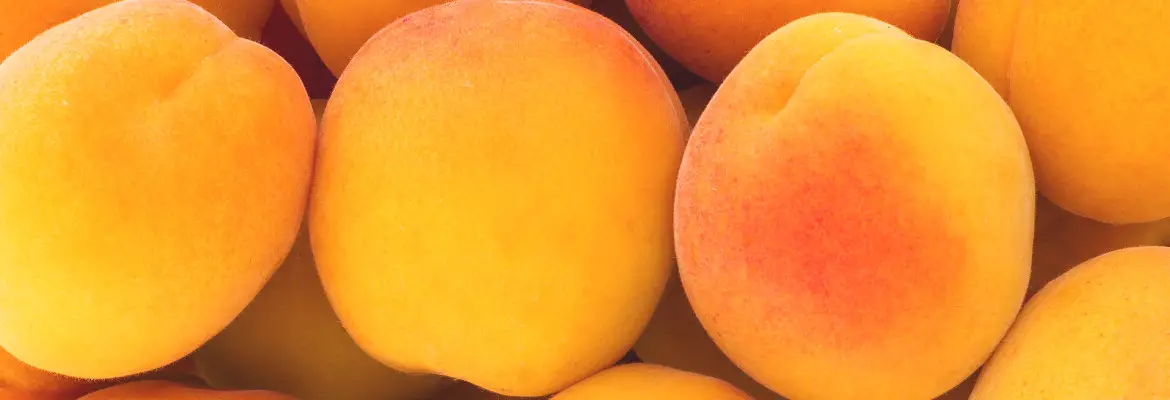Apricots, round to oblong in shape is a stonefruit/ drupe much like plums, cherries or peaches. Ripe apricots have a rosy blush and the skin colour can range from yellow, orange to golden.
Apricot has a flesh which is sweet, juicy and tender.
Average length of an apricot is 4-6 cm (1.5 – 2.4 inches) . Average weight of an apricot is 25 grams (0.9 ounces).

Scientific name of Apricot
Prunus Armeniaca
Other names of Apricot
- Abricot
- Albaricoque
- Armenian Plum
- Jardalu
- Albicocca
Calories by source in Apricot
- Calories by carbohydrate in Apricot = 82%
- Calories by fat in Apricot = 6%
- Calories by protein in Apricot = 11%
Fats and Fatty Acid profile of Apricot
- Polyunsaturated fat (PUFA) in Apricot = 28%
- Saturated fat (SFA) in Apricot = 10%
- Monounsaturated fat (MUFA) in Apricot = 62%
Nutrition facts of Apricot
*Serving size = 100 grams = 3.55 Ounces = 1/2 cup
*DV= % Daily Value (%DV indicates how much nutrients contribute to a person’s daily diet from a serving of a food. DV assists you in determining whether or not a serving of food is high or low in a particular nutrient.)
| Nutrient | Amount | Unit | DV |
|---|---|---|---|
| Calories | 48 | KCAL | |
| Fat | 0.39 | GRAM | 0% |
| Protein | 1.4 | GRAM | 3% |
| Carbohydrate | 11.12 | GRAM | 4% |
Detailed vitamin profile of Apricot, vitamin A, vitamin B12, vitamin B6, vitamin C, vitamin D, Folate, Niacin, Thiamin, and Riboflavin is shown in the chart.
Detailed mineral profile of Apricot, Sodium(Na), Calcium(Ca), Copper(Cu), Iron(Fe), Magnesium(Mg), Selenium(Se), Phosphorus(P), Potassium(K) and Zinc(Zn) is shown the chart.
Check freshness in Apricot
- Unripe apricot is green in color
- Ripe apricot is orange in color with a pumpkin spice color undertone
- Ripe apricot is soft to the touch with a smooth skin
- Softness of apricot is directly proportional to the sweetness of apricot. the Softer the apricot, the sweeter it is
- Select plum apricots if you wish to select the freshest apricot
- Ripe apricots smell very good unlike unripe apricot which will give somewhat a hint of acidic smell
Availability of Apricot
- The Seasons of apricots depend on the geographical location where it is being cultivated
- India – Apricot season ranges from July – September
- Chile – Apricot season ranges from November – December
- USA – Apricot season ranges from may – July
- Canada – Apricot season ranges from July – August
- UK – Apricot season ranges from July – August
- Spain – Apricot season ranges from June – July
- France – Apricot season ranges from May – July
- Italy – Apricot season ranges from June – August
How to store Apricot
- Unripe apricots can be stored at room temperature until they ripe ( you can keep them in a paper bag if you wish to quicken the ripening process)
- Ripe apricots can be stored at room temperature for 2-3 days
- Ripe apricots can be stored in refrigerator for 5-6 days ( keeping apricots in a plastic bag is recommended when being stored in refrigerator)
- Ripe apricots can be stored in freezer for up-to 12 months
- Storing whole apricot in the freezer is not recommended
- To store apricot in the freezer, cut the apricot in pieces and freeze them on a tray
- After freezing the apricot pieces, place them in a freezer bag or container and store it in the freezer
Complete nutrition facts of Apricot
Click on the link HERE to download high quality, high resolution and print ready PDF version of the Apricot nutrition chart/infographic.


